Do you love spoiling your furry friend with delicious treats, but are worried about feeding them something they shouldn’t? If the food in question is cassava, then you needn’t worry – it’s a great option for canines!
Cassava is a root vegetable derived from the shrub Manihot esculenta and provides essential vitamins and minerals that help maintain a healthy diet for your pup.
But can dogs eat cassava safely, or does it pose risks to their health? We’ll explain this and more in our blog post today – so come along on this journey of discovery as we explore whether our precious pooches should be eating cassava or not!
What Is Cassava?
Cassava is a root vegetable found in tropical and subtropical regions across the globe. The plant has an edible yellowish-white fleshy root that looks very similar to a potato, but it contains more nutrients than potatoes.
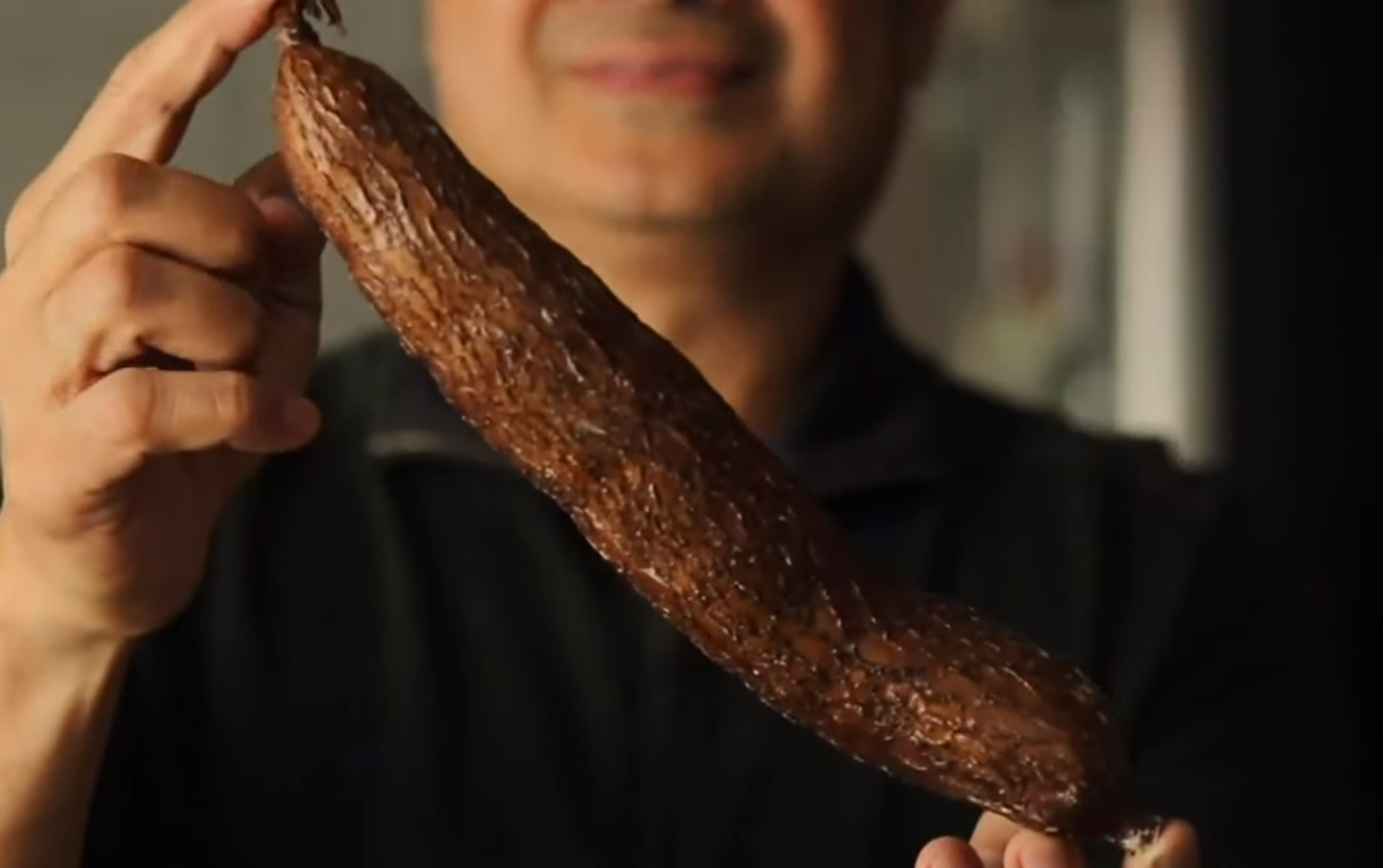
It’s full of vitamin C, potassium, calcium, magnesium, phosphorus, zinc, and folate – all important components of a balanced diet for pups.
Cassava Health Benefits
Cassava is a great addition to your dog’s diet, as it provides essential vitamins and minerals. Not only that, but cassava is also low in fat and an excellent source of dietary fibre – meaning it can help keep your pup fit and healthy.
Cassava can also be beneficial for your pup’s digestive system, as it helps promote regular bowel movements and can even help reduce gas. This makes cassava an ideal food for dogs with sensitive stomachs and digestive issues. [2]
Supports Healthy Weight
Cassava also supports a healthy weight in dogs. Not only is it low in fat, but its high fibre content helps keep your pup feeling fuller for longer – meaning they won’t need to eat as much.
This makes cassava an excellent food choice for overweight or obese pups who need to watch their calorie intake.
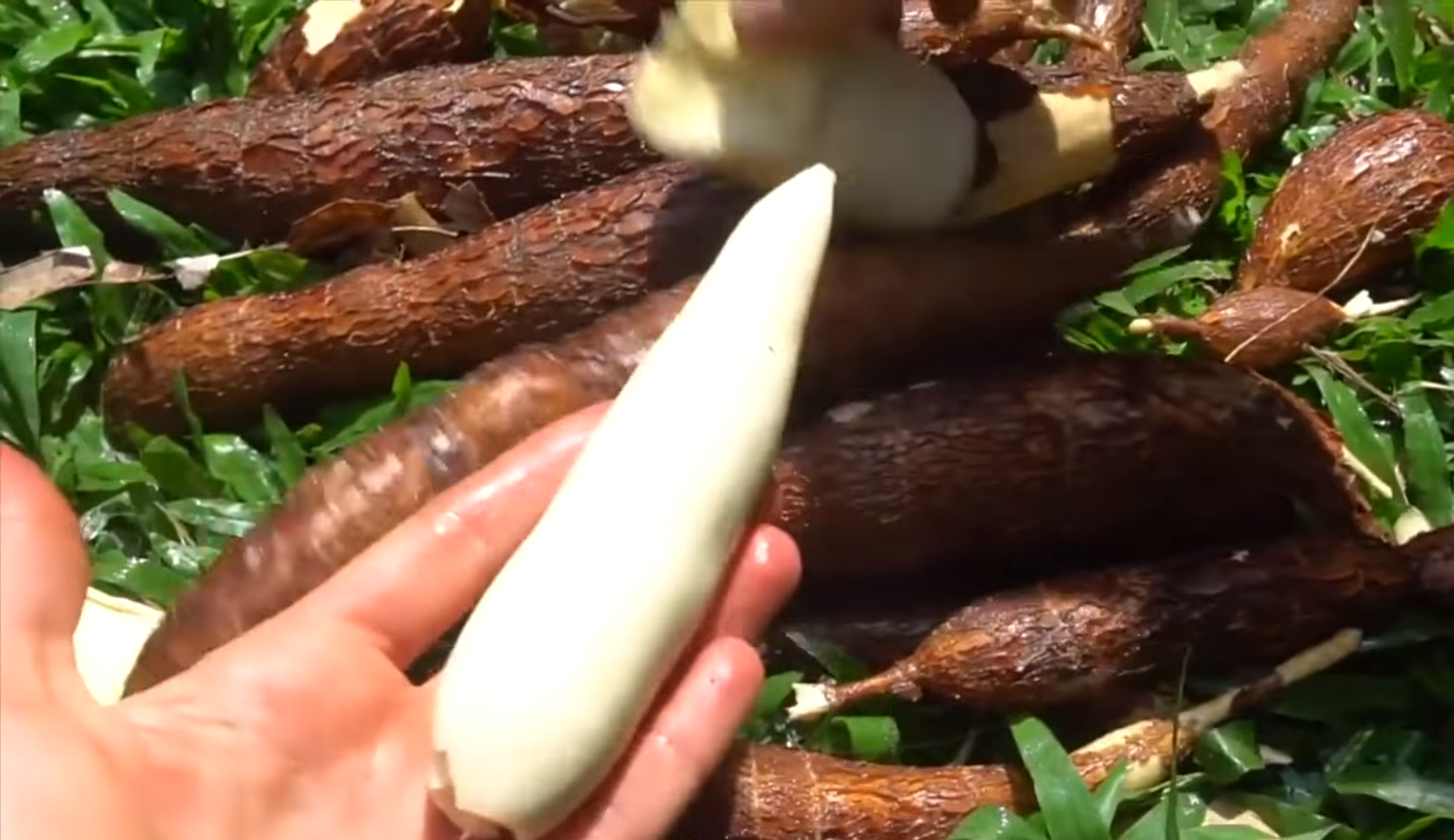
Promotes Good Gut Bacteria
On top of all this, cassava is also a prebiotic – meaning it helps to promote the growth of beneficial bacteria in your dog’s gut. This can help keep digestion running smoothly and improve your pup’s overall health.
Fights Inflammation
Cassava is also packed with antioxidants that fight inflammation and can help prevent certain diseases. This means that by adding a bit of this root vegetable to your pup’s diet, you can help keep them healthy and strong.
Boosts Energy
Cassava can help give your pup an energy boost. The root vegetable contains carbohydrates that are slowly digested and released into the bloodstream over time – meaning they’ll have a steady supply of fuel to keep them going throughout the day.
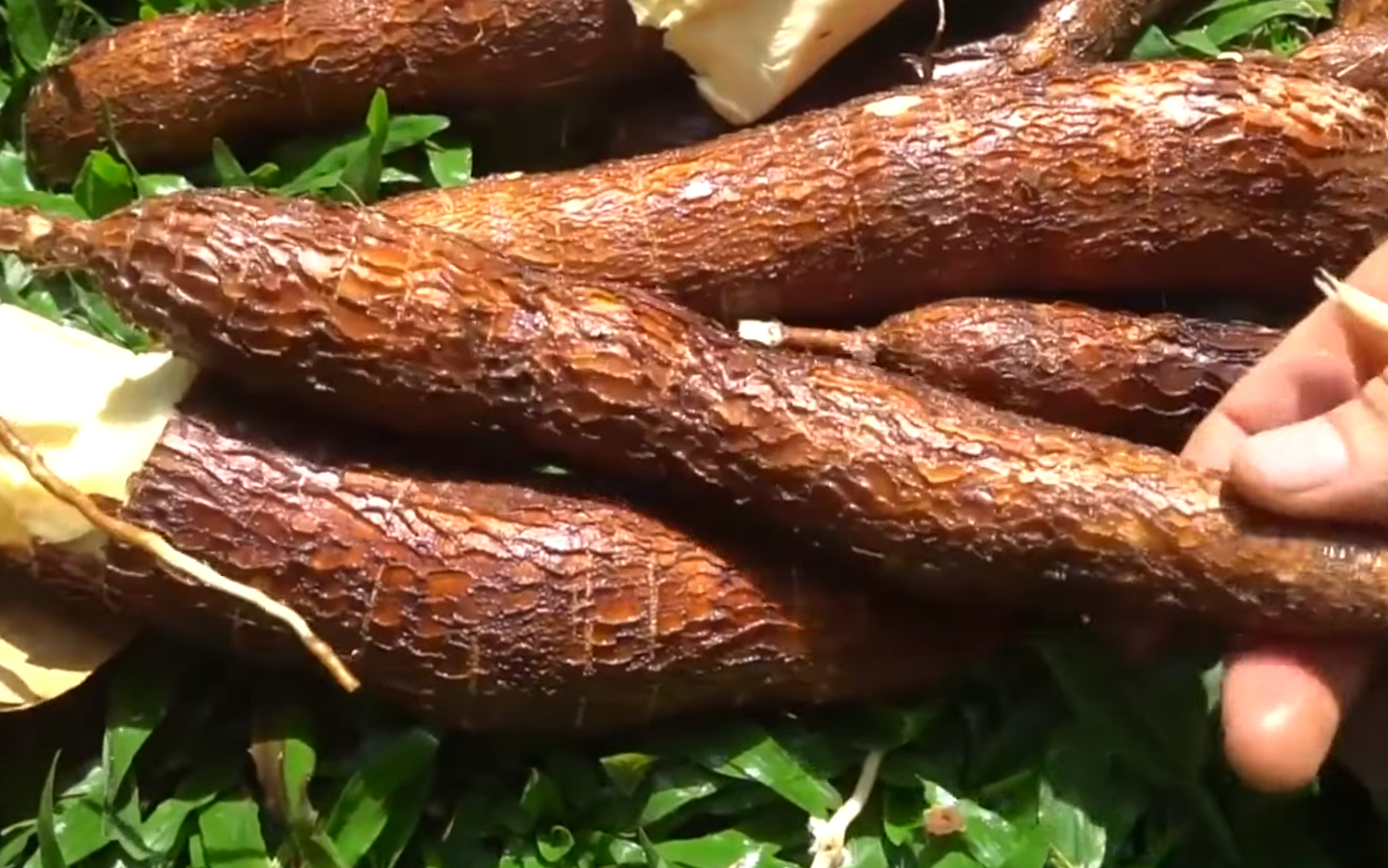
Improves Blood Sugar Levels
Cassava can also help keep your pup’s blood sugar levels in check. The root vegetable contains a type of carbohydrate called resistant starch, which helps to slow the absorption of glucose into the bloodstream – helping to prevent spikes and drops in blood sugar levels.
Promotes Healthy Skin and Coat
Cassava is an excellent source of zinc, which helps promote healthy skin and coat for your pup.
Zinc is essential for the growth and development of cells – including those in the skin and fur – so it’s important to make sure your pup gets enough of this essential mineral.
Cassava Concerns
The only concern with feeding your pup cassava is that it can be difficult to digest – which can lead to stomach upset. If you’re going to feed your dog cassava, make sure you do so in moderation and always monitor their reaction afterward.
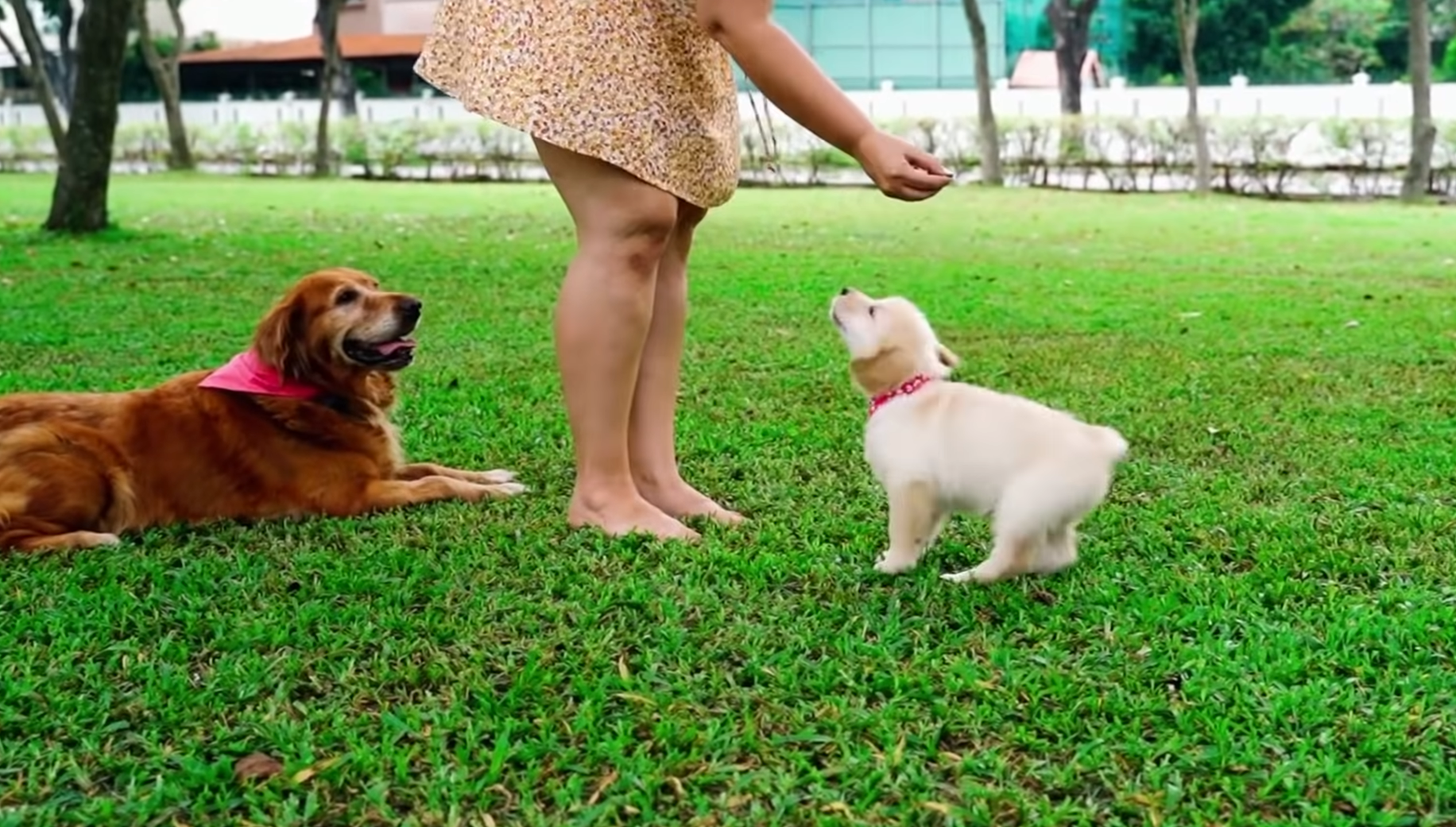
High in Calories
Another thing to keep in mind is that cassava is high in calories. As such, it’s important to not overfeed your pup – as this can lead to obesity and other health issues.
Not Suitable to Eat Raw
And finally, it’s important to note that cassava is not suitable for consumption in its raw state. It needs to be cooked first – either by boiling or steaming – before it can be safely eaten.
How to Serve Cassava?
Now that you know the answer to “can dogs eat cassava?” – let’s look at how you can serve it to your pup. The easiest way is to boil or steam the root vegetable and then mash it up with a spoon or food processor. You can also add a little bit of olive oil and/or cheese for an extra tasty treat!
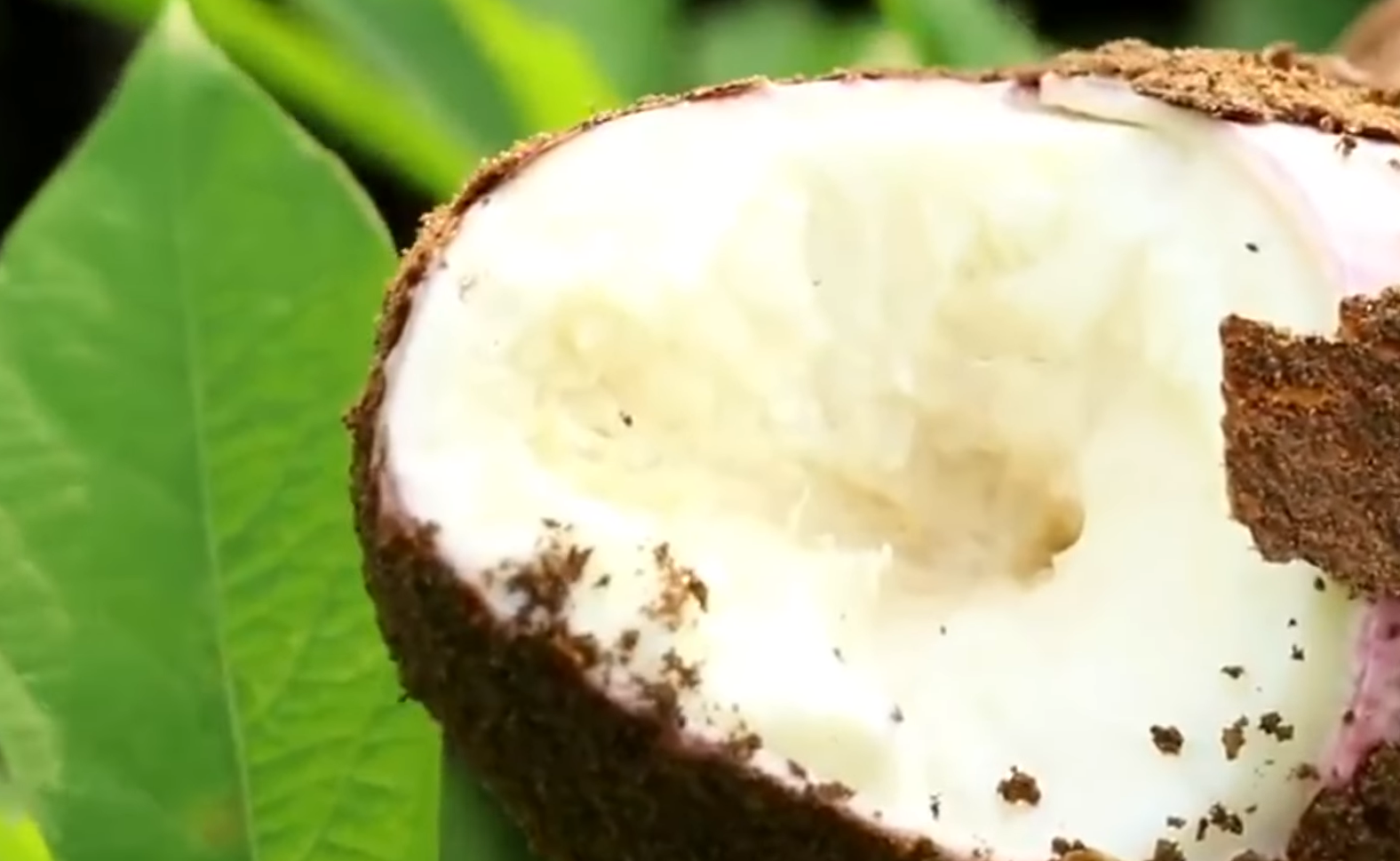
Once cooked, you can feed your pup the cassava either as a standalone snack or mixed in with their regular kibble. Just make sure to start slowly and monitor your pup’s reaction – and only increase the portion size if they seem to be enjoying it.
Cassava in Dog Food
If you don’t want to cook up your cassava treats for your pup, many commercial dog foods contain this root vegetable. Read the labels carefully – and if possible, opt for organic or high-quality brands.
How Is Cassava Good For Dogs?
Cassava is a great food option for pups. It’s full of essential vitamins and minerals that help maintain a healthy diet, plus it can help keep their energy levels up and their blood sugar levels in check.
The root vegetable also contains powerful antioxidants that fight inflammation, and when served in moderation – it can be beneficial for your pup’s digestive system. [1]
How Can I Safely Give Cassava To My Dog?
If you’re going to feed your pup cassava, make sure you do so in moderation and always monitor their reaction afterward.
The root vegetable needs to be cooked first – either by boiling or steaming – before it can be safely eaten. You can then mix it in with their regular kibble or serve as a standalone snack.
FAQ
Can dogs eat yuca cassava?
Yes, dogs can eat yuca cassava safely. The root vegetable needs to be cooked first – either by boiling or steaming – before it can be safely eaten. Make sure to start slowly and monitor your pup’s reaction – and only increase the portion size if they seem to be enjoying it.
Is cassava safe for dogs?
Yes, cassava is safe for dogs when served in moderation and cooked first. The root vegetable provides essential vitamins and minerals, plus it’s low in fat and an excellent source of dietary fibre – meaning it can help keep your pup fit and healthy.
Is cassava good for dogs?
Yes, cassava is a great food option for pups. Not only does it provide essential vitamins and minerals, but when served in moderation – it can help keep their energy levels up and their blood sugar levels in check.
The root vegetable also contains powerful antioxidants that fight inflammation, plus it promotes the growth of beneficial bacteria in your dog’s gut.
What is cassava in dog food?
Cassava is a root vegetable that can be found in many commercial dog foods. It provides essential vitamins and minerals, plus it’s low in fat and an excellent source of dietary fibre – making it a great way to keep your pup fit and healthy.
Look for organic or high-quality brands with cassava listed as one of the main ingredients.
Can dogs eat cassava chips?
No, dogs should not eat cassava chips. The chips are usually fried in oil – making them unhealthy for your pup and increasing their risk of obesity.
Plus, the chips may contain other ingredients like artificial flavours and preservatives that can be harmful to your pup’s health. It’s best to avoid giving your dog cassava chips altogether.
Is cooked cassava safe?
Yes, cooked cassava is safe for dogs. The root vegetable needs to be cooked first – either by boiling or steaming – before it can be safely eaten. Make sure to start slowly and monitor your pup’s reaction – and only increase the portion size if they seem to be enjoying it.
Can animals eat cassava?
Yes, animals can eat cassava safely. It’s full of essential vitamins and minerals that help maintain a healthy diet, plus it contains powerful antioxidants that fight inflammation.
The root vegetable also helps keep their energy levels up and their blood sugar levels in check – making it an ideal food option for both cats and dogs.
Can animals eat raw cassava?
No, animals should not eat raw cassava. The root vegetable needs to be cooked first – either by boiling or steaming – before it can be safely eaten.
If you’re going to feed your pup cassava, make sure you do so in moderation and always monitor their reaction afterward.
What are the benefits of cassava for dogs?
Cassava is a great food option for pups. It’s full of essential vitamins and minerals that help maintain a healthy diet, plus it can help keep their energy levels up and their blood sugar levels in check.
The root vegetable also contains powerful antioxidants that fight inflammation, and when served in moderation – it can be beneficial for your pup’s digestive system.
Are there any risks associated with feeding cassava to my dog?
Yes, there are some risks associated with feeding your pup cassava. The root vegetable is high in calories – so it’s important to not overfeed your pup as this can lead to obesity and other health issues.
Additionally, cassava can be difficult to digest – so it’s important to start slowly and monitor your pup’s reaction. If they don’t seem to be enjoying it, discontinue feeding them the root vegetables.
What other root vegetables can I feed my dog?
There are many other root vegetables that you can safely feed your pup. These include sweet potatoes, carrots, butternut squash, and parsnips – all of which provide essential vitamins and minerals plus fibre to help keep their digestive system healthy.
Additionally, beets are a great option as they contain powerful antioxidants that fight inflammation and support a healthy immune system.
What are some alternative snacks for dogs?
If you’d like to give your pup an alternative snack, you can always opt for treats made from fruit or vegetables.
Apples, bananas, blueberries, and carrots all make great snacks – plus they provide essential vitamins and minerals that help maintain a healthy diet.
Additionally, there are many commercial dog treats available that contain these ingredients – just make sure to check the label for any potential allergens.
What other food can I give my dog alongside cassava?
If you’re going to give your pup cassava, it’s important to provide them with a well-balanced diet. This means making sure they get enough protein as well as essential vitamins and minerals from their food.
You can serve them lean meats like chicken or turkey, plus you can also add in cooked brown rice, oatmeal, and quinoa for extra carbohydrates.
Additionally, make sure to provide them with plenty of fresh fruits and vegetables – such as carrots, broccoli, apples, and bananas.
What should I avoid feeding my dog?
It’s important to avoid giving your pup any human food that could be potentially harmful. This includes chocolate, onions, garlic, grapes, and raisins – all of which can cause vomiting and diarrhoea if ingested.
Additionally, it’s best to avoid processed foods such as chips or cookies as these are usually high in fat and sugar – making them unhealthy snacks for your pup.
What can I do if my dog is allergic to cassava?
If you think your pup may be allergic to cassava, it’s important to take them to the vet for a proper diagnosis. If they are in fact allergic, there are many other food options available that can provide the same nutrients with less risk of an allergic reaction. These include sweet potato, pumpkin, white potato, and squash – all of which are great alternatives to cassava.
How can I tell if my dog is having an allergic reaction?
If your pup is exhibiting signs of an allergic reaction – such as itching, scratching, or vomiting – it’s important to take them to the vet for a proper diagnosis.
Additionally, you should keep an eye out for any rashes, hives, or difficulty breathing that could indicate they are having an allergic reaction.
If you suspect your pup is having an allergic reaction, it’s important to stop feeding them cassava and take them to the vet as soon as possible.
How much cassava is too much for my dog?
It’s important to only feed your pup a moderate amount of cassava. The root vegetable is high in calories – so it’s best to keep the portions small and monitor their reaction afterward.
Additionally, you should not give them more than 10-15% of their daily caloric intake from cassava – as this can lead to obesity and other health issues.
How can I get my dog to eat cassava?
If your pup isn’t a fan of the root vegetable, you can try mixing it in with their kibble or adding some wet food on top.
You can also opt for flavoured treats such as freeze-dried cassava chips – just be sure to check the label for any potential allergens. Additionally, you can add in some cooked brown rice or oatmeal for extra carbohydrates.
Why is it important to feed my dog cassava in moderation?
It’s important to only feed your pup a moderate amount of cassava – as the root vegetable is high in calories and can lead to obesity if overfed. Additionally, it can be difficult for some dogs to digest – so it’s best to start slowly and monitor their reaction afterward.
When served in moderation, cassava can be a great addition to your pup’s diet – just make sure you do so in moderation and always monitor their reaction afterward.
Does cassava contain any toxins that could harm my dog?
Fortunately, no – the root vegetable is non-toxic for pups. Additionally, cassava is full of essential vitamins and minerals that help keep their diet balanced and healthy – plus when served in moderation it can be beneficial for your pup’s digestive system. Just make sure to start slowly and monitor your pup’s reaction to the root vegetable.
Are there any other health benefits associated with feeding my dog cassava?
Yes – cassava is full of essential vitamins and minerals that are beneficial for your pup’s skin, bones, and muscles. Additionally, it contains high levels of dietary fibre which can help keep their digestive system healthy and efficient.
When served in moderation, cassava can be a great addition to your pup’s diet – just make sure you do so in moderation and always monitor their reaction afterward.
Does cassava have any nutritional value for my dog?
Yes – cassava is full of essential vitamins and minerals that are beneficial for your pup’s skin, bones, and muscles. Additionally, it contains high levels of dietary fibre which can help keep their digestive system healthy and efficient.
When served in moderation, cassava can be a great addition to your pup’s diet – just make sure you do so in moderation and always monitor their reaction afterward.
What is the best way to prepare cassava for my dog?
The best way to serve your pup cassava is by boiling it until it’s soft. This makes it easier for them to digest, plus it retains all of the essential vitamins and minerals that make it beneficial for their diet.
Additionally, you can mix in other ingredients such as cooked brown rice or oatmeal to add some extra carbohydrates to the meal.
Do I need to give my dog supplements if I feed them cassava?
No – while providing your pup with a well-balanced diet is important, you don’t necessarily need to provide them with supplements. However, it’s best to consult your vet before making any changes to your diet.
Additionally, make sure to provide them with plenty of fresh fruits and vegetables – such as carrots, broccoli, apples, and bananas. These provide them with essential vitamins and minerals that help keep their diet balanced and healthy.
Does cassava have any other benefits for my dog?
Yes – the root vegetable is full of essential vitamins and minerals that are beneficial for your pup’s skin, bones, and muscles. Additionally, it contains high levels of dietary fibre which can help keep their digestive system healthy and efficient.
When served in moderation, cassava can be a great addition to your pup’s diet – just make sure you do so in moderation and always monitor their reaction afterward.
Useful Video: 22 Common Foods That Will Kill Your Dog
Conclusion
After considering all the evidence, the verdict is in; yes, dogs can eat cassava under the right conditions. As with any food item, it is important to consult with your veterinarian before feeding anything new to your pup.
To keep your pet safe, never feed them more than a very small quantity of cassava, and keep an eye on how they are reacting to eating it. It may be beneficial to only offer a tiny piece or soak the cassava first to reduce its fibre content. If your dog does not show signs of an adverse reaction, then it should be okay for them to enjoy a little bit of this root vegetable as an occasional snack.
All in all, no matter what type of treat you give your pup, remember that the best thing you can give them is plenty of love and exercise – and that’s always paw-positively friendly!
References:
- https://dogtime.com/dog-health/dog-food-dog-nutrition/95759-can-dogs-eat-cassava-safe
- https://www.hepper.com/can-dogs-eat-cassava/





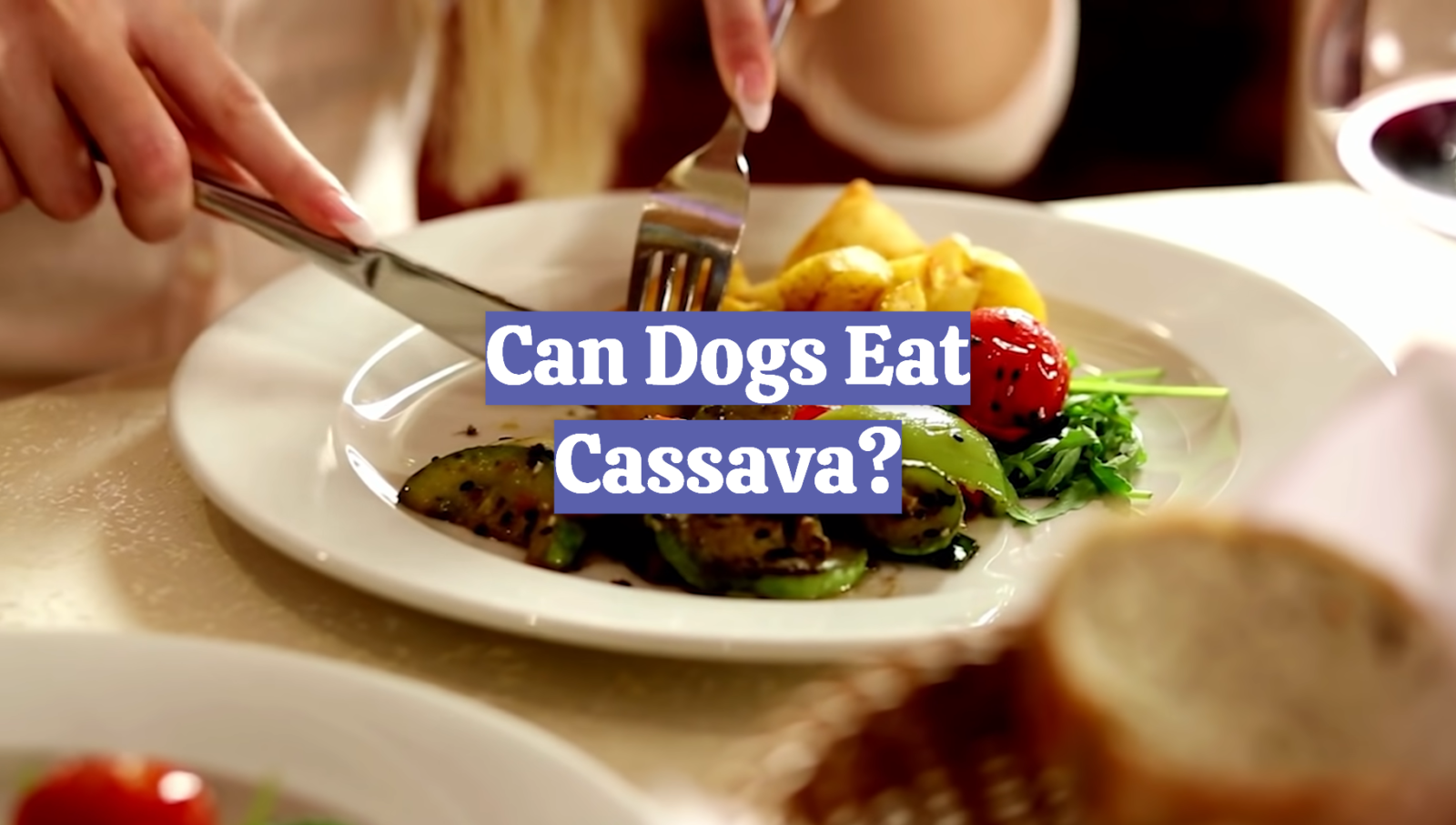
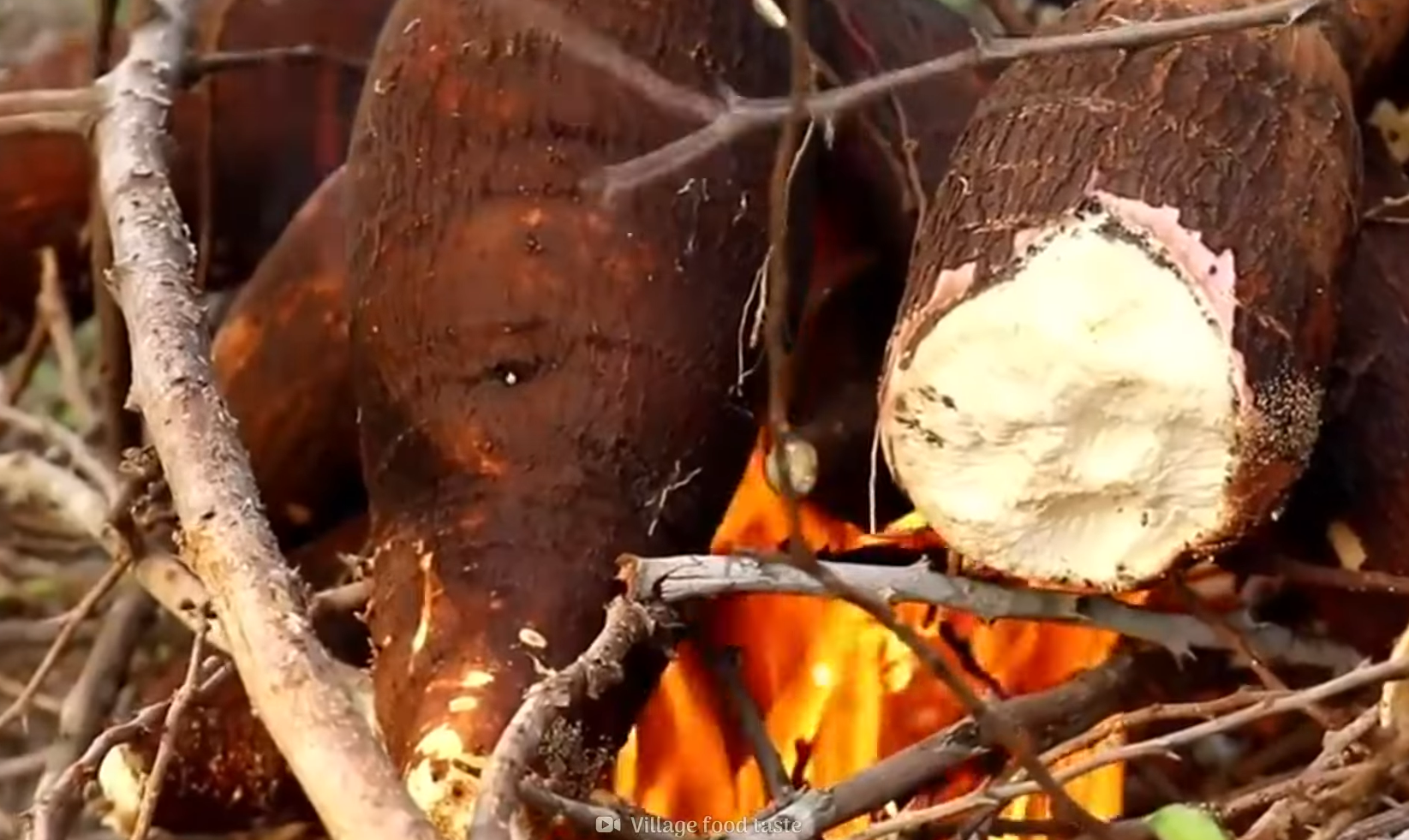



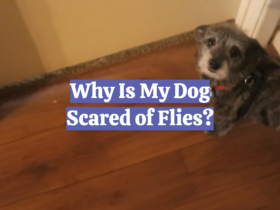
Leave a Reply